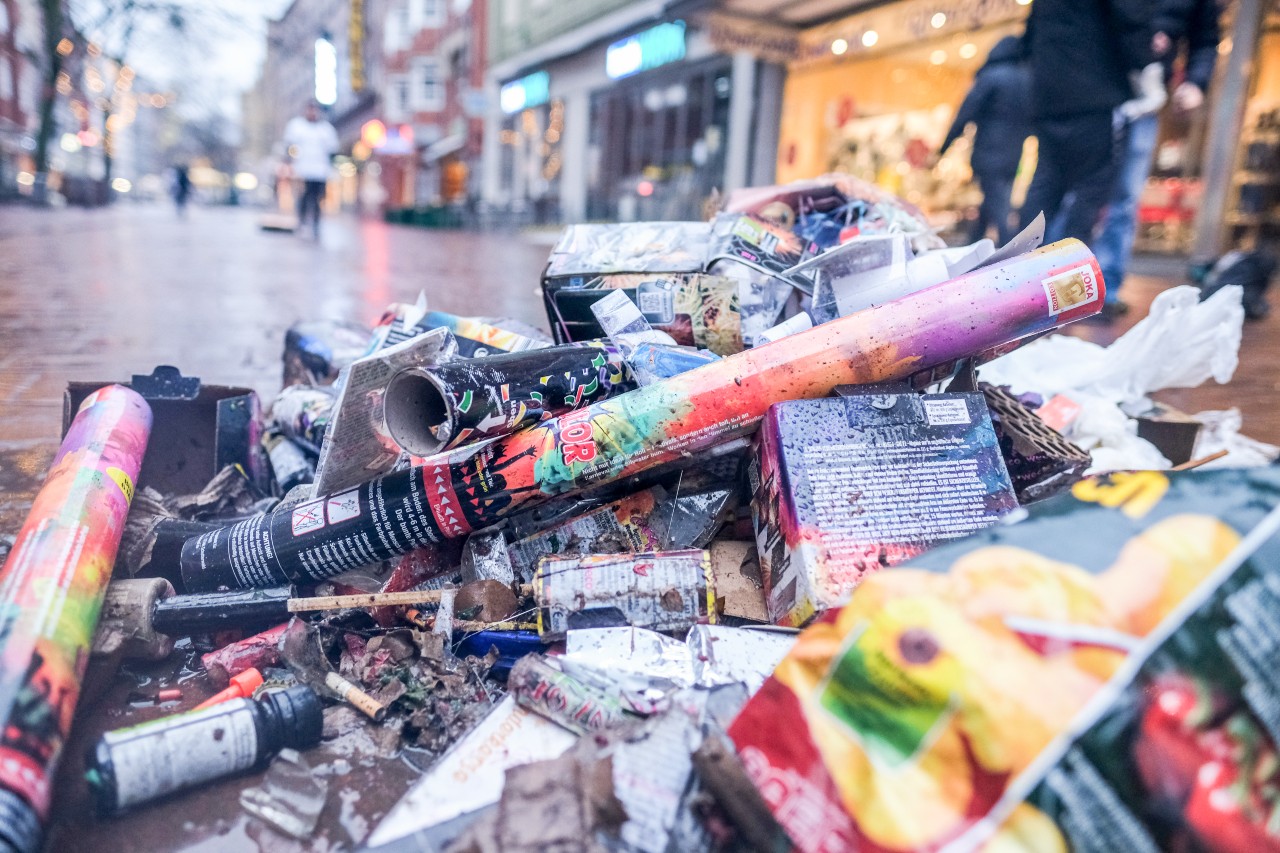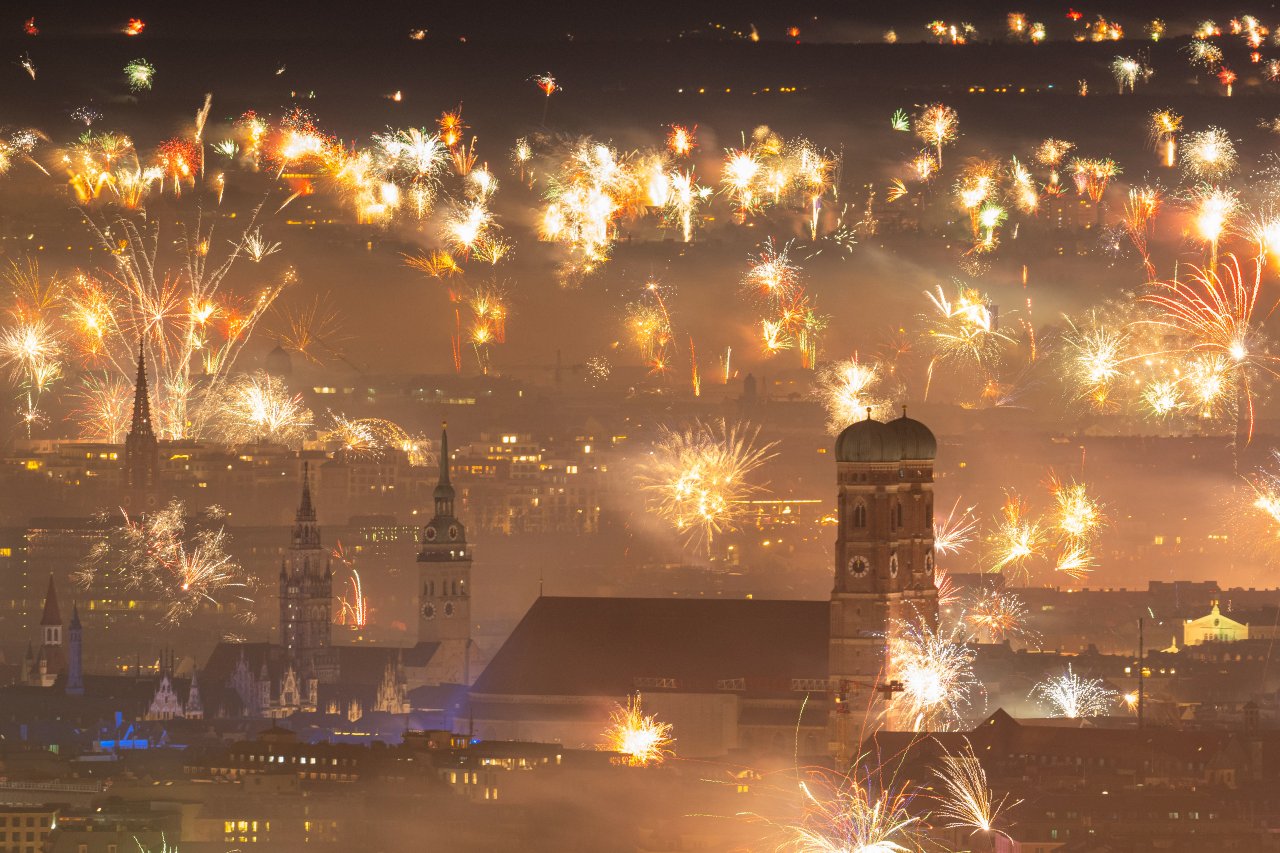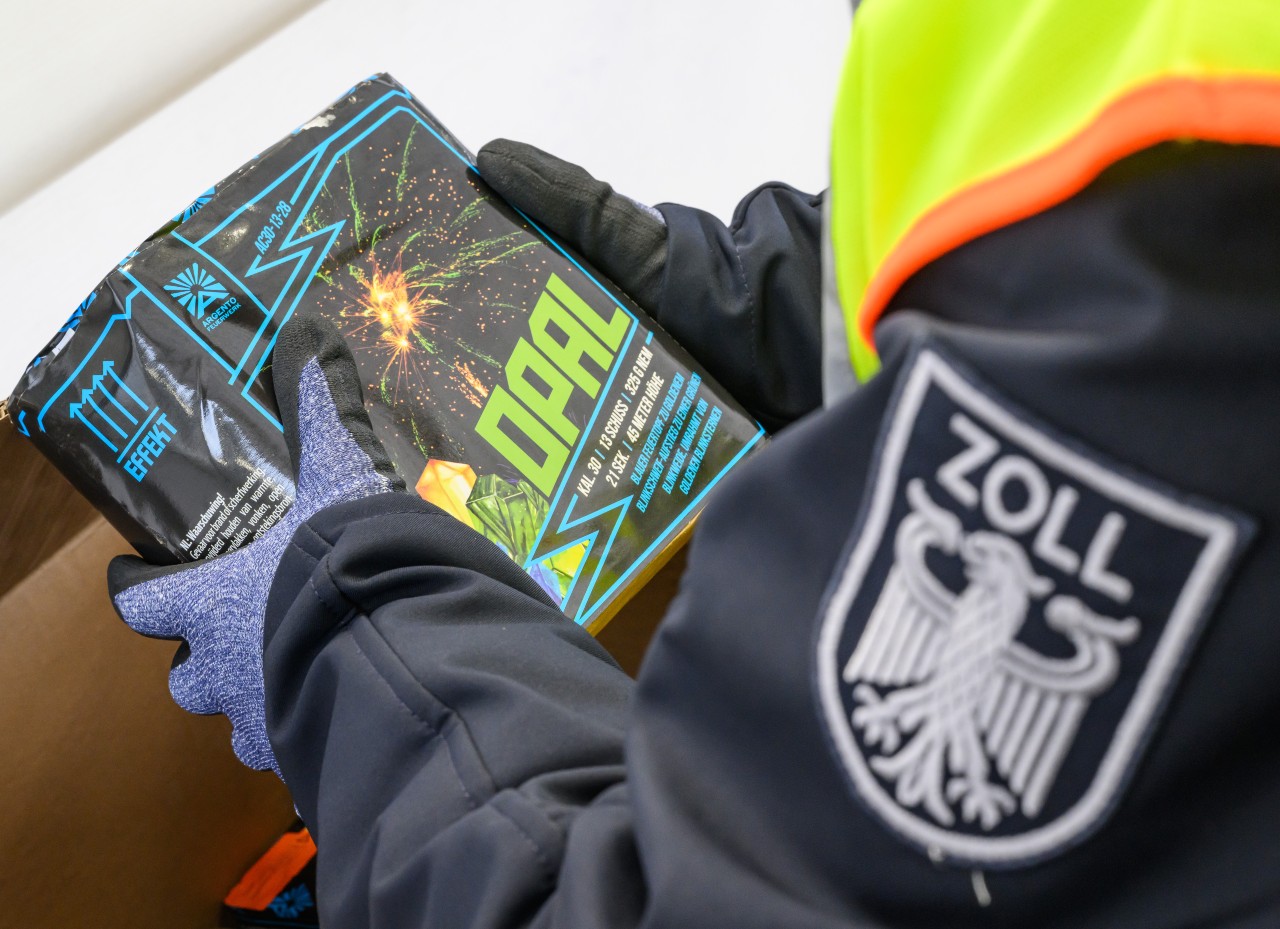As Christmas passes into the rear-view mirror, people in Germany are looking forward with both excitement and trepidation to a very special time of year: Silvester, or New Year's Eve.
Despite annual calls for a fireworks ban, this date in the calendar remains a bombastic, pagan-like celebration in which Germans of all ages release an arsenal of rockets into the night sky. On this evening only, anarchy appears to reign in the normally straight-laced Bundesrepublik, as explosions are heard through towns and cities and freshly-lit firecrackers fizzle by the side of the road.
If you'd like to take part in the wild revelry this year, you may be surprised to learn that there are some rules you need to follow. From purchasing your rockets to setting them off, here's your guide to staying on the right side of the law this New Year's Eve.
When and where can I buy fireworks?
Every year in the run-up to New Year's Eve, Germany permits a three-day window in which people can stock up on their arsenal of explosives.
This year, this window will run from Saturday, December 28th to Tuesday, December 31st - with an extra day penned in to account for shop closures on Sunday.
Since fireworks are in such high demand, some businesses open will open their doors at midnight on Saturday to allow pyromaniacs to shop to their hearts' content.
Over the past few years, the German Pyrotechnics Association (VPI) has reported record sales of €180 million each Silvester - possibly to make up for the lull during the pandemic years. That means it's best to act fast if you're hoping to set the skies alight on the 31st.
If you're wondering where to get your stash of rockets, pretty much every supermarket and discounter in Germany stocks them at this time of year. One of the easiest ways to get them is to head to your nearest Kaufland, Lidl, Aldi, Netto or Rewe.
Alternative options include hardware stores like Hellweg and OBI, pharmacies like Müller and general retailers like Mäc-Geiz, Wollworths, Tedi and Galeria Karstadt Kaufhof.
READ ALSO: 10 ways to celebrate this New Year's Eve like a German
What type of fireworks can I buy?
If you're thinking of curating your own fireworks display, you'll first need to understand Germany's rating system.
Under this system, fireworks are classified from F1 to F4, with F1 being the smallest and safest and F4 denoting massive pyrotechnics that require professional training to handle safely.
If you’re 18 or older, you’re allowed to buy fireworks up to category F2 in the run-up to New Year’s Eve. These are described as “fireworks that pose a low risk, have a low noise level, and are intended for use in designated outdoor areas.”

Basically, F2 covers small, relatively safe fireworks and rockets - perfect for a festive backyard display.
For those aged 12 and up, F1 fireworks - like sparklers and firecrackers - are fair game. But for the bigger, more powerful F3 and F4 categories, you’ll need a special permit or professional training.
READ ALSO: Do Germans want a complete ban on New Year's Eve fireworks?
Can I set them off anywhere?
If you've happened to walk down the streets of Berlin Neukölln on New Year's Eve, you'd be forgiven for thinking that anything goes when it comes to launching your rockets. Luckily for those who value their limbs, that's not quite the case - so you'll need to observe a few guidelines when deciding where to set off your arsenal.
As a general rule, pyrotechnics aren't allowed to be launched in the vicinity of churches, hospitals, petrol stations, children's and old people's homes or near thatched and half-timbered houses.
Many cities also ban fireworks at big public gatherings such as the Silvester party near Berlin's Brandenburg Gate and also in certain demarcated 'prohibited areas' or Verbotzonen around the city.
You should also note that F2-category fireworks - which tend to be larger rockets - can only be set off after sundown on New Year's Eve and until 7am on January 1st. If you hear a few of these being set off on Sunday and Monday (as tends to happen after they go on sale), the people launching them are probably breaking the law.
READ ALSO: Why on earth do Germans call New Year's Eve Silvester?
Will there be firework-free zones?
There will. Every year, cities around Germany demarcate certain areas where setting off fireworks is strictly forbidden - usually in busy central areas and at large social gatherings.
In Berlin, a ban on fireworks has been put in place at Alexanderplatz, along Neukölln's Sonnenallee and parts of the surrounding streets and in Steinmetzkiez in Schöneberg. In nearby Potsdam, a ban will be enforced around the historic Sansocci palace.
In Hamburg, setting off fireworks around the Binnenalster is banned, as well as along Jungfernstieg, Neuer Jungfernstieg, Lombardsbrücke, Ballindamm and Reesendamm and at the Rathausmarkt.
In Munich, fireworks are banned in much of the pedestrianised Old Town between 9pm and 2pm during Silvester, with the prohibition zone running from Marianplatz to the Strachus and also incorporating the Viktualienmarkt.

In Augsburg and Regensburg, the historic city centres are also off-limits to pyrotechnic fans, while in Nuremberg there is a strict ban around the Burg and glass bottles are also prohibited.
In Mainz's Altstadt and in Trier's Hauptmarkt district, prohibition zones will be set up as in previous years.
There are also local firework bans this year in Stuttgart, Tübingen, Reutlingen and Constance. In the capital of Baden-Württemberg, a ban on fireworks is planned within the city centre ring road.
Due to the large number of people who gather there on New Year's Eve, fireworks will be prohibited on the Iron Bridge in Frankfurt am Main. A large section of the inner city - primarily encompassing the pedestrianised area - will also be a no-go zone for pyrotechnics.
In Cologne, there will be a large area in the city centre on the left bank of the Rhine where fireworks will not be allowed this year.
Similarly, in Düsseldorf, the entirety of the Altstadt is set to be a firework-free zone.
Is there anything else I need to know?
When it comes to buying fireworks, make sure you go to a reputable supplier and check that the products you're buying are fully regulated and safety tested.
For larger F2 fireworks, this means looking out for a test seal and a registration number on the external packaging.
In eastern Germany, it's quite common for people to head to Poland in order to skirt the safety regulations and buy bigger and more powerful fireworks - but anyone thinking of doing this should be aware of the risks.

Firecrackers smuggled in from Eastern Europe tend to contain a higher quantity of black powder or mixtures of potassium perchlorate and aluminium powder, making them much more dangerous. These types of fireworks are also banned in Germany, so anyone caught using them is likely to face a hefty fine.
According to the Federal Institute for Materials Research (BAM), you should aim to put at least eight metres' distance between you and larger rockets after igniting them. Though it's common to stick rockets in a bottle to light them, it's much more stable to put the bottle in a drinks crate first, BAM advises.
As a general rule, you should never light a rocket in your hands and should always set off F2 category fireworks in the open air, rather than indoors.

Comments